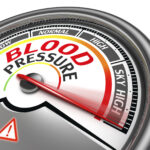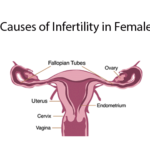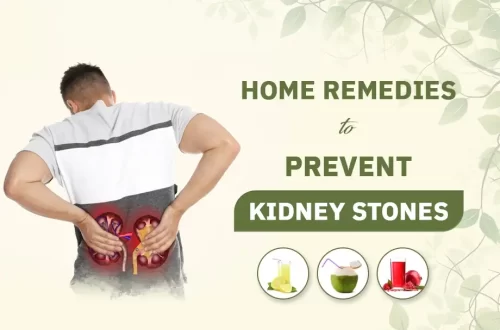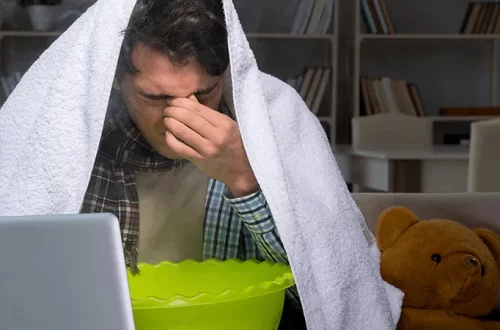Understanding Causes of Poor Appetite
This article will help you understand various factors responsible for different causes of poor appetite. Loss of appetite refers to a decreased desire to eat, even when your body needs nourishment.
This can make you feel full quickly, lose interest in food, or even develop an aversion to the taste, smell, or appearance of meals. In some cases, it may also lead to avoiding social gatherings where food is involved.
Loss of appetite can occur suddenly or develop gradually over time. While temporary appetite changes are common, a prolonged lack of hunger lasting more than a week may indicate an underlying health issue and should be addressed.
Symptoms That May Accompany Loss of Appetite
In addition to reduced hunger, loss of appetite can come with other symptoms, including:
- Fatigue or low energy: Feeling weak or drained, even after rest.
- Nausea or vomiting: A queasy stomach or an urge to throw up.
- Muscle weakness: A decline in strength or difficulty performing daily activities.
- Digestive issues: This can include constipation (infrequent bowel movements) or diarrhea (loose or watery stools).
- Changes in appearance: You might notice alterations in your skin, hair, or nails, such as dryness, brittleness, or thinning.
Loss of Appetite vs. Anorexia: What’s the Difference?
The medical term for loss of appetite is anorexia. However, this is not the same as anorexia nervosa, an eating disorder characterized by food restriction due to an intense fear of weight gain.
- When experiencing anorexia (loss of appetite), you simply don’t feel hungry and may struggle to eat enough.
- In anorexia nervosa, a person may still feel hunger but deliberately limits food intake due to psychological and emotional factors.
If you or someone you know is experiencing persistent appetite loss, it’s important to seek medical advice to rule out underlying conditions and ensure proper nourishment.
For more information on appetite loss, visit: Mayo Clinic – Loss of Appetite
Signs of Loss of Appetite
Experiencing a loss of appetite means you no longer feel as hungry as usual or have little interest in eating. Some common signs include:
- Reduced interest in food: You may feel indifferent toward meals or snacks, even those you once enjoyed.
- Avoiding favorite foods: Dishes you used to love might no longer appeal to you.
- Skipping meals: You may forget to eat or deliberately miss meals because you don’t feel hungry.
- Unintentional weight changes: A prolonged loss of appetite can lead to noticeable weight loss or, in some cases, fluctuations in body weight due to changes in food intake.
If appetite loss persists for more than a week, it may indicate an underlying health issue that requires medical attention.
What Causes Poor Appetite?
Appetite is a natural urge to eat, providing the body with essential nutrients and energy. When appetite declines, there is usually an underlying reason—whether medical, psychological, or environmental. In many cases, appetite loss is temporary, such as during an illness or periods of extreme stress. However, when it persists for a longer time, it may indicate a more serious health concern.
Here are some common causes of appetite loss:
- Infections and Illnesses
- Short-term infections: Flu, colds, urinary tract infections (UTIs), chest infections, and stomach bugs (gastroenteritis) can temporarily reduce hunger.
- Chronic infections: Conditions like tuberculosis (TB) or HIV/AIDS can cause prolonged appetite loss.
- Medications and Treatments
- Certain antidepressants (e.g., fluoxetine), ADHD medications (e.g., methylphenidate), chemotherapy drugs, type 2 diabetes medications, and strong painkillers (opiates) can lead to appetite suppression as a side effect.
- Mental Health Conditions
- Stress and anxiety: High levels of emotional distress can make eating unappealing.
- Depression: Appetite loss is a common symptom, often accompanied by low mood, difficulty concentrating, and sleep disturbances.
- Breathing and Digestive Disorders
- Respiratory conditions like chronic obstructive pulmonary disease (COPD), pneumonia, asthma, pulmonary embolism, and heart failure can make eating difficult due to breathlessness.
- Gastrointestinal issues such as acid reflux, indigestion, Crohn’s disease, ulcerative colitis, celiac disease, appendicitis, diverticulitis, and gallstones can cause discomfort that reduces appetite.
- Dental and Oral Problems
- Issues like toothaches, poorly fitting dentures, dental abscesses, dry mouth, jaw dysfunction, and loss of taste can make eating difficult or unappealing.
- Sensory Disruptions
- Appetite is influenced by sight, smell, and taste. Conditions that affect these senses—such as nasal congestion (allergies, polyps, infections) or loss of vision, taste, or smell—can reduce the desire to eat.
- Serious Health Conditions
- Cancer: Appetite loss is common in many types of cancer and can also be a side effect of treatments like chemotherapy and radiation.
- Diabetes mellitus: Blood sugar imbalances can disrupt hunger signals.
- Thyroid disorders: An underactive thyroid (hypothyroidism) can slow metabolism and decrease appetite.
- Chronic conditions: Long-term illnesses like chronic pain, kidney disease, liver disease, and dementia often lead to reduced food intake.
- Eating Disorders and Substance Use
- Anorexia nervosa: A psychological disorder marked by an intense fear of weight gain and food restriction.
- Substance use: Excessive alcohol consumption and certain drugs can suppress hunger.
- Aging and Lifestyle Factors
- Appetite naturally declines with age due to slower digestion, decreased activity, or chronic illnesses.
- Older adults may also feel full longer due to a slower stomach-emptying process.
Loss of appetite can be caused by physical or emotional factors. Changes in the body can directly affect hunger signals, while emotional and psychological states can influence your desire to eat.
- Physical Causes of Loss of Appetite
Certain bodily changes can interfere with your ability to feel hunger, leading to appetite loss. These may include:
- Pain: Chronic or acute pain can make eating uncomfortable or unappealing.
- Dehydration: Lack of fluids can lead to reduced appetite and low energy.
- Dental problems or tooth pain: Issues like cavities, gum disease, or poorly fitting dentures can make chewing painful.
- Injury: Physical trauma may temporarily suppress hunger due to stress and the body’s healing process.
- Loss or reduction of taste or smell: Conditions such as sinus infections, COVID-19, or aging can dull these senses, making food less appealing.
- Recovering from surgery: Anesthesia, pain medication, and post-surgical inflammation can reduce appetite.
- Emotional and Psychological Causes of Loss of Appetite
Emotions play a significant role in eating habits. Psychological factors that may lead to appetite loss include:
- Anxiety: High stress levels can cause nausea or digestive issues, reducing hunger.
- Eating disorders: Conditions like anorexia nervosa or bulimia affect appetite and food intake.
- Emotional distress: Grief, fear, sadness, or shock can suppress appetite.
- Depression: One of the common symptoms of depression is a loss of interest in food.
- Stress: Chronic stress can interfere with hunger signals and digestion.
If appetite loss persists for an extended period, it’s important to identify the underlying cause and seek medical advice if necessary.
When to Seek Help
If appetite loss lasts more than a week or is accompanied by unexplained weight loss, persistent fatigue, or other concerning symptoms, consult a healthcare provider to determine the cause and appropriate treatment.
For more information, check out:
- Mayo Clinic – Loss of Appetite
- Cleveland Clinic – Loss of Appetite
What Should You Do If You Lose Your Appetite?
If you experience a persistent loss of appetite without an obvious reason, it’s important to consult a doctor (GP). As seen above, there are many possible causes, ranging from minor illnesses to more serious conditions like cancer. A doctor can help identify the underlying issue and provide appropriate treatment.
When to See a Doctor Immediately
You should seek medical advice as soon as possible if your loss of appetite is accompanied by any of the following symptoms:
- Unintentional weight loss (losing weight without trying)
- Difficulty swallowing (feeling like food gets stuck)
- Abdominal pain or swelling
- Night sweats (waking up drenched in sweat)
- Nausea or vomiting
- Tiredness or extreme fatigue
- Low mood or depression
- Shortness of breath
- Blood in stools (red or black-colored bowel movements)
What Tests Might Be Needed?
To determine the cause of appetite loss, your GP will ask about your symptoms and conduct a physical examination. They may also recommend the following tests:
- Blood tests – Can help identify infections, nutritional deficiencies, or conditions like diabetes and thyroid problems.
- Ultrasound scan of the abdomen – Useful for detecting issues with the liver, gallbladder, or digestive system.
- Chest X-ray – May be performed if a lung condition is suspected.
- Other specialized tests – Depending on the suspected diagnosis, your doctor may order additional tests, such as an endoscopy (to check the digestive tract), CT scan, or MRI.
How Is Loss of Appetite Treated?
The treatment for appetite loss depends on its underlying cause. Addressing the root issue—whether it’s an infection, medication side effect, mental health issue, or chronic disease—is key to restoring a healthy appetite.
General Tips to Improve Appetite
While waiting for a diagnosis or if no serious cause is found, you can try the following:
- Eat small, frequent meals instead of three large meals.
- Stick to bland, easy-to-digest foods like rice, toast, bananas, or yogurt.
- Stay hydrated with water, herbal teas, or broths.
- Engage in light physical activity (like walking), which can naturally stimulate hunger.
- Avoid strong smells or flavors that might trigger nausea or aversion to food.
- Try nutritional supplements (such as high-protein shakes) if you’re struggling to eat enough.
If your appetite does not return after a few days, or if you experience any red flag symptoms (such as unexplained weight loss or blood in your stool), see a doctor immediately. Your appetite is essential for maintaining overall health, and addressing the cause early can prevent complications.
For more information, visit:
- NHS – Loss of Appetite
Care and Treatment for Loss of Appetite
The treatment for a loss of appetite depends on the underlying cause. A healthcare provider may perform blood tests or imaging scans to determine what’s affecting your appetite and recommend appropriate treatment.
Medical Treatments for Loss of Appetite
Depending on the cause, medical treatment may include:
✅ Eating small, frequent meals – Instead of three large meals, try eating smaller portions throughout the day to maintain energy levels.
✅ Managing underlying conditions – Treating infections, illnesses, or chronic diseases can help restore appetite.
✅ Appetite-stimulating medications – Certain drugs can help increase hunger, including:
- Low-dose corticosteroids – Reduce inflammation and can stimulate appetite.
- Cyproheptadine – An antihistamine that may promote weight gain.
- Megestrol acetate – Used in cancer or AIDS patients to improve appetite.
- Dronabinol – A synthetic cannabis-based drug that stimulates hunger.
✅ IV nutrition therapy – If eating is difficult, intravenous (IV) nutrients (liquid vitamins and minerals) can help maintain essential nutrition.
✅ Mental health support – If appetite loss is due to stress, depression, or an eating disorder, working with a therapist or counselor may be beneficial.
✅ Medication adjustments – Some medications can suppress appetite. A doctor may change the dosage or switch to a different medication.
✅ Dietitian support – Consulting a registered dietitian can help manage eating habits and ensure proper nutrition.
✅ Dental check-ups – If dental issues or tooth pain are affecting your ability to eat, a visit to the dentist may be necessary.
Home Remedies to Improve Appetite
If you’re experiencing appetite loss, here are some things you can try at home:
🍽 Eat at regular times – Even if you’re not hungry, try eating small portions for breakfast, lunch, and dinner to keep your body nourished.
🥣 Try liquid meals – If solid foods are unappealing, opt for nutrient-rich liquids such as:
- Soups and broths
- Smoothies or fruit juices
- Protein shakes
- Electrolyte-rich sports drinks
🍞 Eat bland foods – If you have nausea or digestive discomfort, go for gentle, low-fiber foods like:
- Plain rice, bread, or crackers
- Unseasoned meats (chicken, fish, or turkey)
- Mashed potatoes or steamed vegetables
🥩 Choose nutrient-dense foods – When possible, eat foods high in protein, vitamins, and minerals, such as:
- Lean meats, eggs, or tofu
- Dairy products like yogurt and cheese
- Nuts, seeds, and healthy fats (avocado, olive oil)
👨👩👧 Eat with family or friends – Sharing meals with loved ones can create a positive eating environment and encourage you to eat.
When to Seek Medical Help
If your appetite doesn’t return after recovering from an illness, injury, or infection, or if you experience weight loss, fatigue, or persistent nausea, contact your healthcare provider for further evaluation.
For more details, check out:
- NHS – Loss of Appetite
Side Effects, Prevention, and When to See a Doctor for Loss of Appetite
Side Effects of a Loss of Appetite
A prolonged loss of appetite can have serious health consequences if left untreated. Possible side effects include:
⚠️ Malnutrition – Lack of essential nutrients can weaken the immune system, slow healing, and cause muscle loss.
⚠️ Unintentional weight loss – Losing weight too quickly can lead to weakness, fatigue, and imbalances in body function.
⚠️ Dehydration – If a loss of appetite also affects fluid intake, dehydration can occur, leading to dizziness, confusion, or organ strain.
⚠️ Weakened body systems – The heart, brain, and digestive system rely on energy from food. Prolonged calorie deficiency can affect their function.
⚠️ Life-threatening complications – In extreme cases, long-term malnutrition can lead to organ failure and serious health problems.
How to Prevent a Loss of Appetite
Since appetite loss can stem from various causes, prevention isn’t always possible. However, you can reduce the risk by:
✅ Managing underlying conditions – Regular check-ups help keep chronic illnesses under control.
✅ Reviewing medications – Some medications suppress appetite; talk to your doctor about alternatives if needed.
✅ Eating regularly – Skipping meals can make appetite loss worse. Try eating at the same time every day.
✅ Staying physically active – Light exercise can help stimulate appetite by increasing metabolism and energy needs.
When to Seek Medical Attention
Consult a healthcare provider if you experience:
❗ Loss of appetite lasting more than a week
❗ Unintentional weight loss
❗ Fatigue, weakness, nausea, rapid heart rate, or irritability
❗ Difficulty swallowing or persistent nausea
A sudden, unexplained loss of appetite could be a warning sign of an underlying condition. Don’t ignore persistent symptoms—seek medical advice if your appetite does not return.
Bulimia Nervosa An Eating Disorder
Natural Treatments for the Brain
Cucumber Beautifies and Cleanses the Skin
Turmeric for your stomach and skin

A graduate of Computer Science and Information Management Technology. Diploma – Caregiving, Certificates – Dementia and Diabetes Awareness and Management. A researcher, blogger, songwriter, singer and acoustic guitarist. Born in an environment where natural talents such as healing are imparted at our natural birth. This natural talents of healing is the result of our genetic inheritance and the training from family environment.












